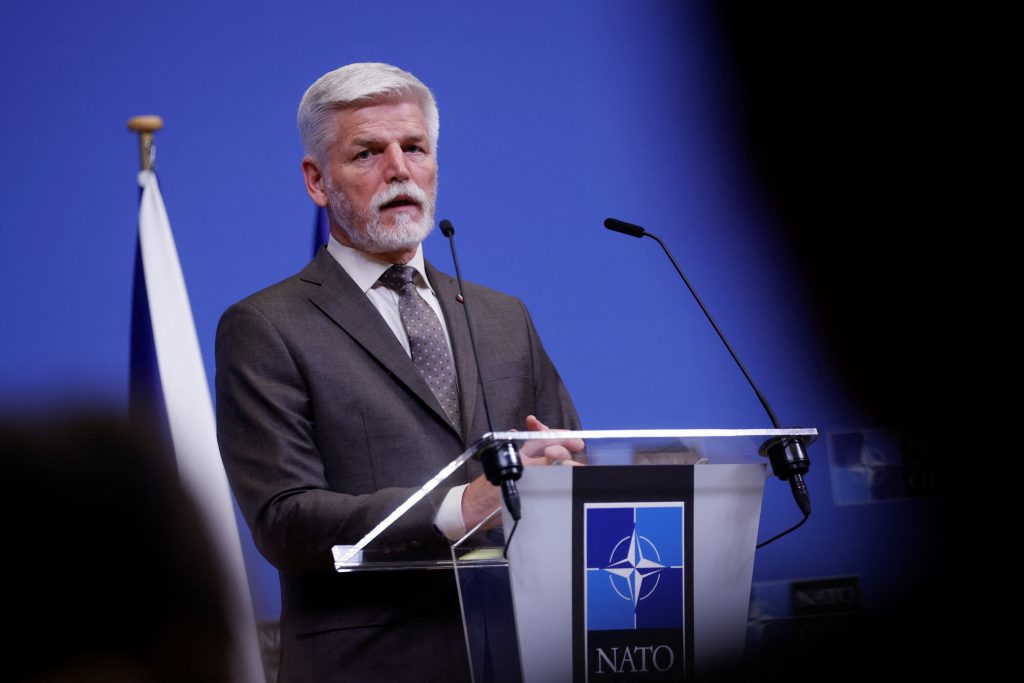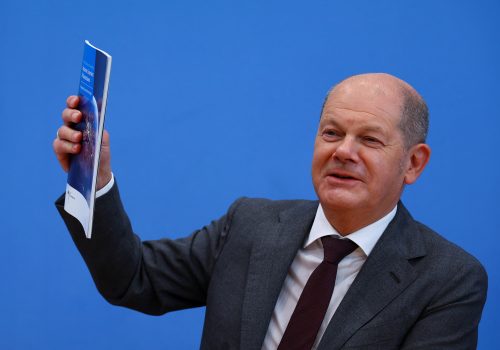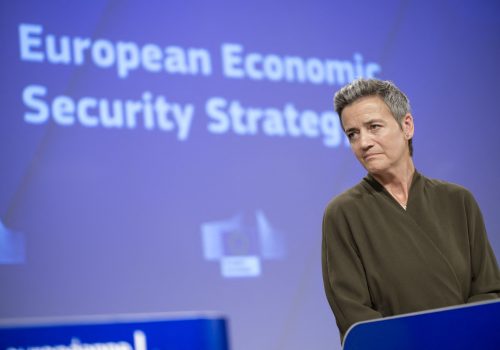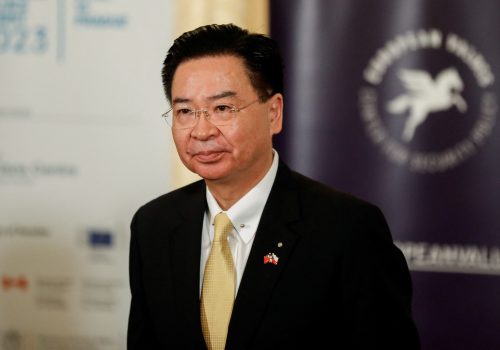With Russia’s brutal attempt to redraw borders by force, Europe underwent a massive tremor. Moscow’s desecration of the rules-based world order woke up the continent from its geopolitical sleepwalking. Security and defense are beginning to be taken seriously again. Adjusting to the new geopolitical reality, several European countries have drafted new security strategies and similar documents, including France, the United Kingdom, the Netherlands, Denmark, and Germany. One can add here the European Union (EU) and NATO strategic outlooks from last year.
Now the Czechs have joined the swarm. On June 28, the government in Prague approved a new national security strategy, replacing the previous strategy from 2015. Though perhaps less weighty than papers presented by major European powers, it is worth paying attention to the Czech strategy. As highlighted by Martin Povejšil, the Czech foreign ministry’s director general for security and multilateral issues, the new document is “addressing threats and risks in the most open and direct way, compared to other countries.” This directness offers a refreshingly realistic assessment of the current security environment and helps to explain the ongoing European strategizing momentum.
Drafting the thirty-seven-page document took nine months, and the work was coordinated by the Ministry of Foreign Affairs (MFA), leaving a clear mark on the text. There were discussions in the past about whether the MFA should be the penholder, considering that an important part of the document dealt with internal security and also the defense ministry does the work in France and some other countries. The increasing impact of external factors on internal security has assuaged these doubts. Still, it appears to have been a thoroughly intergovernmental effort that included a number of ministries and collected inputs from parliament, the president’s office, and nongovernmental organizations.
The security strategy has a twofold purpose: First, it is meant to be the starting point and binding guidance for further work on security for the whole public sector, from ministries to municipalities. Second, the strategy should also become a “StratCom” tool to communicate major security-related messages to the Czech population, as well as to Czechia’s friends and adversaries. The language, structure, and content of the document reflect this purpose.
There are four distinctive features of the new national security strategy to note.
1. ‘Czechia is not secure’
The document is built on the foundational acknowledgment that “Czechia is not secure,” not due to an internal threat but because of the deteriorating international context. The text gets as far as admitting the possibility that the country “could become part of an armed conflict.” Some may consider this statement overblown, yet it’s deliberate. The risk of open aggression against Czechia remains low but is currently the highest since the end of the Cold War. An effective defense against new security challenges starts with admitting them and forsaking the state of security unconsciousness.
The new strategy wants to contribute to the strategic awakening, the whole of society becoming conscious of current threats. When Karel Řehka, the chief of the general staff of the Czech army, stated in February that he can’t rule out a war between Russia and NATO, which would lead to a partial mobilization, he shocked many of his compatriots. This document puts additional weight behind the seriousness of the situation for Czechs.
2. It’s direct about Russia and China
Compared to previous Czech security strategies (2003, 2011, 2015), the current one is more direct in pointing out the threats and risks.
If the strategy from 2015—which is still partly oriented by the post-9/11 paradigm of the war on terrorism—speaks indirectly about some states seeking the revision of the existing international order, the current document, reminiscent of the NATO 2022 Strategic Concept, denotes Russia as “the biggest immediate and long-standing direct threat to the security of Europe and to the international rules-based order.” And it will remain so—one can read a few lines lower—“unless Russia goes through a fundamental and deep transformation, political as well as social, no matter what outcome the war in Ukraine may have.” Czechia and its neighbors have a particular reason to worry, given the assumption that Moscow “continues to treat Central Europe as its natural sphere of influence.” That’s why it’s important for the EU to engage in a serious reconsideration of its relations with Russia, which some member states are still reluctant to support.
China is described as a country that represents “a fundamental systemic challenge globally and is attempting to change the existing international order.” There were reportedly some discussions about whether to explicitly designate China as a “threat.” In the end, the text avoids creating a new precedent and keeps closer to the language used by the EU and NATO allies. The document highlights that Beijing “continues with massive arming… engages in cyber espionage, seeks to control global data flows, and uses diverse forms of socio-economic coercion and other hybrid interference tools.” One can easily identify Beijing where the text describes—without attribution—other major dangers and risks. Interestingly, the paragraph after China’s portrayal begins as follows: “Yet another long-term threat comes from…” Logically, what was discussed just before—China—could be interpreted also as a long-term threat.
Other threats mentioned are North Korea’s nuclear program, Iran’s malign activities in the region, lasting conflicts in the Middle East and Africa, and uncontrolled migration. The document also points out the security challenges related to climate change, instability in the Western Balkans, and—importantly—the risks of declining democracy and rule of law in any EU member state.
3. A whole-of-government and whole-of-society approach is needed
The new strategy is distinguished by its holistic approach to security. The country’s defense is no longer just the responsibility of the military and a few other relevant government bodies. The document advances the idea that all the ministries and the public sector should be involved, along with business and civil society. Indeed, all citizens should be somehow engaged, as they are not only security consumers but its contributors and creators. It’s the government’s role to prepare people for this task.
To paraphrase a French anthropologist Marcel Mauss—one of the godfathers of modern sociology and anthropology—national security appears here as “total social fact,” even if different players are engaged at different levels.
Given the whole-of-society dimension of national security, the strategy makes an effort to present an easy-to-read text accessible to the broader public, hoping to generate a public debate. Czechia’s more integrated approach appears to have more in common with the German strategy, compared to, for example, France’s 2022 strategic review, which is more focused on the military (and a military-minded audience). On the other hand, Prague’s new security strategy is closer to the French strategy in that both seem unified and clearer in their priorities compared with the German document, in which one can easily identify different voices of the three coalition partners, making it a bit more of a patchwork.
4. The focus is unity, not autonomy
If the new strategy is realistic in the assessment of threats, it also reflects the values-based policies Czechia is now championing. There’s now a broad consensus in Prague toward restoring former President Václav Havel’s legacy of values-consistent foreign policy, from Prime Minister Petr Fiala’s coalition government to new President Petr Pavel and the leaders of both chambers of parliament.
The strategy repeatedly emphasizes Czech NATO and EU membership as key to ensuring the country’s security, especially while the “role of the [United Nations] as a protector of the order keeps losing traction.” The document alludes to the need for reinforcement of the EU Common Security and Defense Policy while highlighting complementarity with NATO and the Alliance’s key role in collective defense.
Those following the debate about EU “strategic autonomy” won’t be surprised that the concept, put to the forefront by French President Emmanuel Macron, isn’t mentioned. Instead of “strategic autonomy,” which can imply greater European separation from the United States, Prague prefers to talk about “strategic unity” within the EU and, importantly, across the Atlantic.
There’s more to come
The new Czech security outlook will be complemented by other strategic documents, including a defense strategy, foreign policy concept, and reviews of approaches toward China, Russia, and energy security. This should be done by early 2025, when the foreign ministry, in coordination with the national security adviser, will review the implementation of the current security strategy, as stipulated by the relevant government resolution.
Yet, even the new strategy alone makes it clear Prague is taking a bolder approach to national security, and it presents yet another indicator of a tectonic shift in Europe’s politics. It likely won’t be the last. Expect more countries in Central and Eastern Europe to step up and take on a more proactive approach as well. As an appetizer, one could refer to Lithuania’s bold Indo-Pacific strategy, released July 5.
Petr Tůma is a visiting fellow at the Atlantic Council’s Europe Center. He is a Czech career diplomat with an expertise on Europe, Middle East, and transatlantic relations. He previously worked at the Czech Embassy in Washington, DC. His views are his own.
Further reading
Wed, Jun 14, 2023
The hits and misses in Germany’s new national security strategy
New Atlanticist By
Chancellor Olaf Scholz has just released Germany's national security strategy. Atlantic Council experts answer the most urgent questions about the document and the path forward for this major European power.
Thu, Jun 22, 2023
The ‘de-risk’ is in the details: A look at Europe’s ambitious new economic security strategy
New Atlanticist By
The European Commission has just released its European economic security strategy, which is aimed at reducing threats from China and others to supply chains, critical infrastructure, and digital technology.
Tue, Jun 27, 2023
What’s driving Central and Eastern Europe’s growing ties with Taiwan?
New Atlanticist By Petr Tůma
A new tone toward Taipei in Europe is being set by Czechia and other Central and Eastern European countries. Taiwan has come to the forefront of their attention mainly because of frustration with Beijing.
Image: Czech President Petr Pavel speaks during a joint press statement with NATO Secretary-General Jens Stoltenberg at the Alliance headquarters in Brussels, Belgium April 19, 2023.



